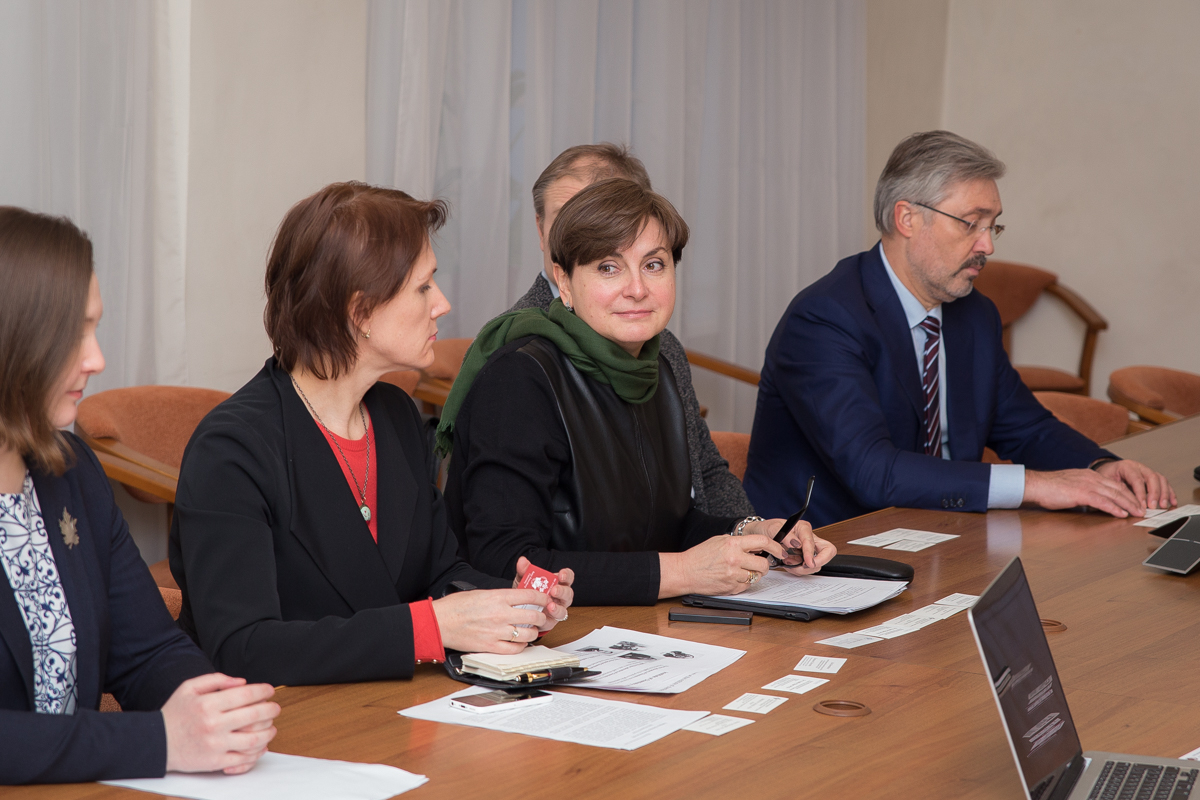Kanazawa University-SPbU collaboration in medicine

The delegation form the Kanazawa University has visited St Petersburg University to discuss joint research and academic exchange with the Faculty of Medicine and institute of Chemistry.
“Our relationships are gaining momentum. SPbU-Japan collaboration is rich in history, and it is crucial. SPbU Rector has been awarded by the highest Japanese order the Medal of Honor: Rising Sun”, — said Vice-Rector for methodological Support Marina Lavrikova.
16
Japan’s universities among the SPbU’s university-partners
Each year, both Russian and Japanese students are involved in the exchange programmes. To that end, Mitsui offers grants and scholarships. Moreover, we collaborate in science. The last several years have seen a rise in the number of joint publications indexed in Scopus and Web of Science.
Deputy Vice-Rector for International Affairs of the Kanazawa University told us through how the university works and lives. Found in 1862, the university is located in the centre of Japan. It has three big colleges that in their turn have 16 faculties. The overarching priority in research is medicine and medical technologies, in particular the methods to study and scan the cancer cells and tissues. To that end, the university opened the Nano Life Science Institute that gained financial support from the government of Japan.
The Dean of the Faculty of Medicine of SPbU professor Petr Iablonskii expressed his gratitude to the Japanese colleagues for their interest in our University and shared his views on the priority areas in research collaboration. He particularly focused on the methods and techniques to precisely transport the drugs to the cells and tissues, work out molecules of new medicines, neurophysiology and technologies of neuromuscular transmission, rehabilitation after the spinal cord injuries, medical genetics (in particular, CRISPR-technologies and gene knockout), and even cosmic microbiology. Besides, SPbU medical scientists study HIV and TB, says Petr Iablonskii. The University helps Japanese medicine enter the Russian market, with SPbU singing agreements with a number of big pharmaceutical companies in Japan.
We highly appreciate the contribution Japan makes into studying oncology and medicine, and it makes our collaboration highly valuable.
Dean of the Faculty of Medicine of SPbU professor Petr Iablonskii
SPbU is a classical university and focuses on a wide range of areas in education and research, says Marina Lavrikova. It can explain interdisciplinary and integrated nature of research. SPbU opens interdisciplinary research laboratories with financial support provided by the grants that the world’s leading scientists head. The University has St Petersburg Clinical Complex as part of the Pirogov National Medical and Surgical Centre and resources centres at the Research Park. SPbU has signed a number of agreements with hospitals in the city and across Russia that offer opportunities for practical trainings and collecting empirical data for research.
Kanazawa University has won a competition held by the government of Japan that aims to internationalize education and boost image of Japan’s higher education globally, says the head of the Japanese delegation. As a result, one of the priorities is to have partnership relationships with the universities of Russia, and SPbU is among the most valuable potential partners for collaboration. The head of the delegation identified the possivle areas ofr collaboration: short-term exchange programmes for students (from one to three months), joint educational programmes, preparation of the high-calibre specialists in medicine, preventive medicine, oncology, and cardiology.
SPbU seeks exchange programmes for senior students and joint research projects. SPbU is also ready to accept Japanese junior students to study fundamental disciplines.
At SPbU, international students can pursue those programmes that are taught in English, says Marina Lavrikova. In particular, they can pursue a unique programme on Russian Studies that focuses on the Russian language, culture, history and current state of affairs in Russia.
The universities agreed to discuss a framework agreement and, after it is signed, to identify the priority areas for collaboration in education and research. Our Japanese colleagues also visited our Resource Centres and saw what opportunities the University can offer.

